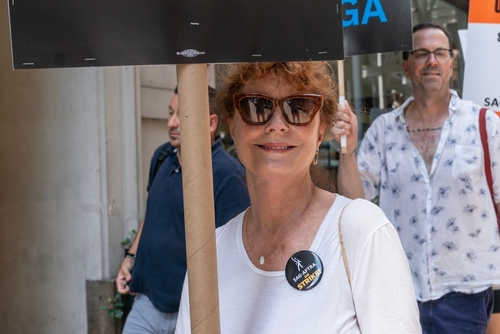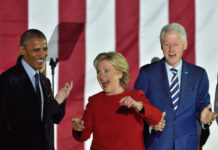
In a recent turn of events, actress Susan Sarandon has come under fire for comments she made during a protest in New York City. The Hollywood veteran, known for her outspoken political views, made a statement that has been perceived as highly insensitive towards the Jewish community. Her words have sparked outrage and have led to widespread criticism from various quarters.
Sarandon’s remarks suggested that Jews were “getting a taste” of what it feels like to live as a Muslim woman in a Muslim country. This comparison has been met with shock and disbelief, particularly because it seems to trivialize the unique historical and contemporary challenges faced by the Jewish community. Critics argue that such a statement not only lacks understanding but also potentially fuels anti-Semitic sentiments.
F**k Susan Sarandon. @SusanSarandon pic.twitter.com/EMiI6GoqAA
— TheGlovesAreOff (@NeverGiveIn1776) November 21, 2023
The backlash against Sarandon’s comments is not just about the inappropriateness of her analogy. It also touches on the broader issue of celebrities using their platforms to make political statements. While it is essential for public figures to speak out on social issues, there is a growing concern that some may do so without fully grasping the complexities of the topics they address. This can lead to oversimplifications and harmful rhetoric that does more damage than good.
Moreover, Sarandon’s comments have been seen as a gross misrepresentation of the experiences of both Jewish and Muslim women. By equating the two, she fails to acknowledge the distinct forms of discrimination and persecution each group has faced. It is a disservice to both communities and undermines the real struggles they continue to endure.
Susan Sarandon is now reposting neo-Nazis. pic.twitter.com/5z5mzazBAm
— Lil AshkeNazX (חיים) (@DrDavidInDC) November 20, 2023
The incident has also raised questions about the role of public protests and the messages they convey. While protests are a vital part of democratic expression, they must be conducted responsibly. When prominent individuals like Sarandon participate, their words can carry significant weight and influence public opinion. It is crucial, therefore, that they communicate with sensitivity and accuracy.
In response to the controversy, there has been a call for Sarandon to engage in a more informed dialogue with members of the Jewish community. This could be an opportunity for learning and growth, not just for the actress but for all those involved. It is through such constructive conversations that mutual understanding and respect can be fostered.
The entertainment industry, too, has a responsibility to respond to such incidents with integrity. It must ensure that its representatives are held accountable for their statements, especially when they have the potential to perpetuate stereotypes or incite division. The industry should encourage its members to educate themselves on sensitive issues before speaking publicly.
In conclusion, Susan Sarandon’s recent comments have undoubtedly struck a nerve and highlighted the need for thoughtful discourse on complex social issues. As the conversation continues, it is hoped that it will lead to greater awareness and empathy rather than further conflict and misunderstanding. It is a reminder that words have power, and with that power comes the responsibility to use it wisely.











